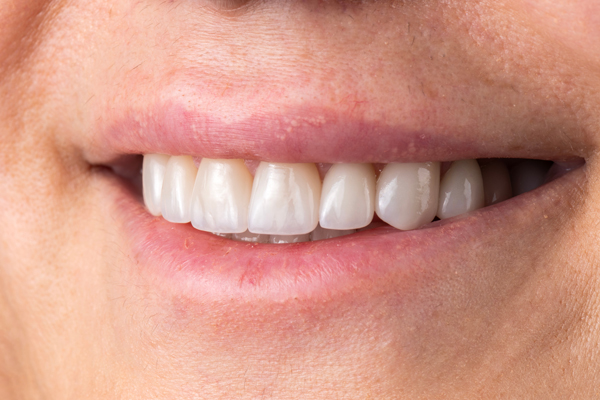Is There a Relationship Between Gum Disease and Diabetes?

Many individuals are familiar with gum disease. What may be unknown, however, is the relationship of diabetes to problems with the gums. Diabetes is the result of multiple diseases within the body that accumulate from too much sugar in the bloodstream. Sugar often becomes the culprit that is responsible for an individual's gum disease. Continue reading to find out how gum disease, diabetes and sugar all relate.
Gum disease and diabetes
Below is an overview of the relationship between gum disease and diabetes, which are two conditions that can negatively affect people's overall health.
Gum disease
Gum disease comes in many stages, starting with a small infection and ending with periodontal disease, which is the most advanced stage of infection reached in the gums. A number of factors may contribute to gum disease, but it is typically the result of a lack of oral hygiene, poor genetics, or excessive sugar consumption.
The relationship
Individuals who have been diagnosed with diabetes are at a higher risk of developing oral problems such as gum disease. When one's blood sugar levels are not normal, diabetes is the result. Unfortunately, diabetics who do not manage their blood sugar levels effectively may experience a number of health conditions, including nerve damage, heart problems, and gum disease.
In the case of gum disease, high blood sugar levels negatively affect the blood vessels, which results in a lack of nourishment and oxygen to the soft tissues of the oral cavity. If the soft tissues are not receiving the appropriate amount of oxygen and nourishment, then gum disease can develop. Additionally, blood sugar levels that are not maintained or controlled can cause an increase of glucose in the saliva. Excessive glucose in the saliva becomes a breeding ground for bacteria, which means multiplication throughout the oral cavity, thus increasing the chances that gum disease will develop.
On the flip side, gum disease can also lead to the development of long-term diabetes. When the soft tissues of the oral cavity are infected for long periods of time, the infection can travel to other parts of the body through the bloodstream. Excessive sugar consumption often causes infections in the oral cavity, and when it travels in the bloodstream, blood sugar levels can elevate or even become out of control, thus resulting in diabetes.
Preventing gum disease
Developing a regular oral hygiene routine and faithfully carrying it out can go a long way toward avoiding gum disease. The following simple habits can help ward off infections of the gums:
- Brush the teeth at least twice a day or after every meal
- Floss daily
- Rinse with salt water once a day or use a gentle mouthwash 3-4 times a week
- Undergo routine dental cleanings from a dentist
Find out more from a general dentist
Individuals who are worried that diabetes may develop as a result of gum disease may find it helpful to consult with a general dentist. An evaluation can be completed to determine whether gum disease is even present. From there, the dentist can prepare a treatment plan and put it in place. Reach out today to ask questions or to get started with a consultation.
Request an appointment here: https://www.yourfamilysmiles.com or call Family Dental Care of Chicago at (773) 250-1194 for an appointment in our Chicago office.
Check out what others are saying about our dental services on Yelp: Gum Disease in Chicago, IL.
Recent Posts
Gum disease treatment addresses the root source of the disease and halts the ramifications. Gum disease, or periodontal disease, is a common condition that damages the gums and the structures that support the teeth. If left untreated, it can cause serious problems, including tooth loss. The good news is that if caught early, these treatments…
When people experience cavities, the resulting pain can interfere with eating and flare up when the cavity comes in contact with hot or cold foods. A laser dentist can assist with repairing cavities depending on their severity and in a way that reduces the pain typically associated with such a procedure. Those who want to…
Are you thinking about making an appointment with a laser dentist? This recent form of dentistry is becoming more common in both preventive and restorative care. It is helpful to learn more about what this professional can do and how visiting one can benefit your oral health and smile. In laser dentistry, the dentist can…
Orthodontics is a holistic way to improve the look and function of teeth. Orthodontic appliances exert steady and gradual pressure to improve the alignment of the teeth. Common appliances are braces, which do most of the heavy lifting for patients with moderate to severe malocclusions.Do you think that your child needs orthodontics? Keep going to…


